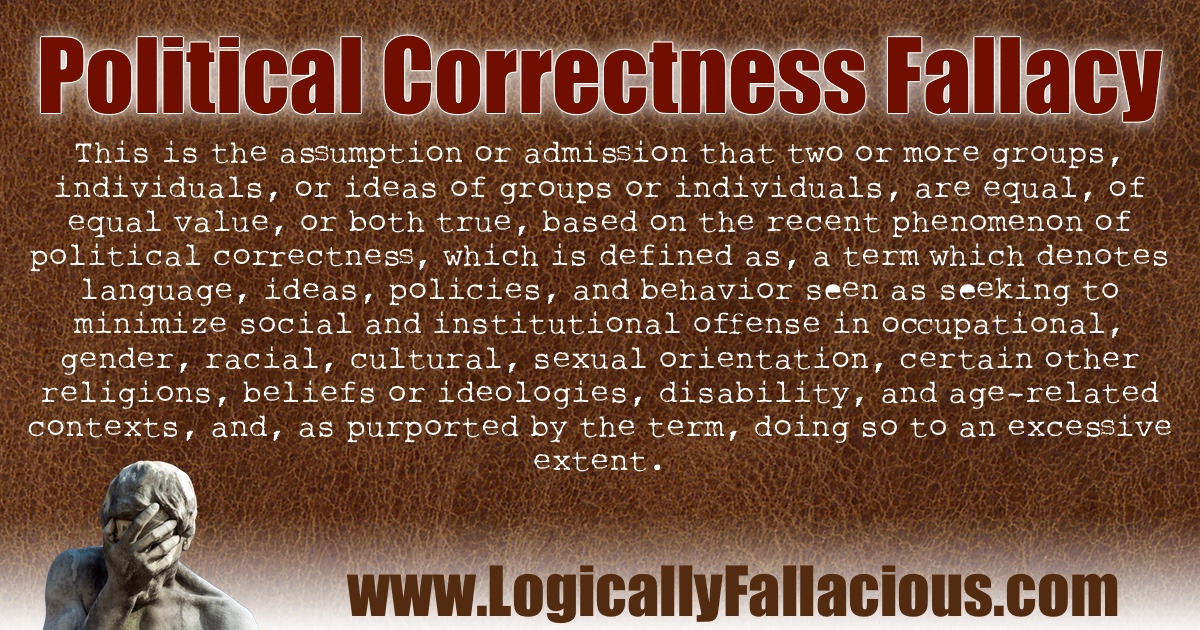(also known as: PC fallacy)
Description: This is a common one in recent history. It is the assumption or admission that two or more groups, individuals, or ideas of groups or individuals, are equal, of equal value, or both true, based on the recent phenomenon of political correctness, which is defined as, a term which denotes language, ideas, policies, and behavior seen as seeking to minimize social and institutional offense in occupational, gender, racial, cultural, sexual orientation, certain other religions, beliefs or ideologies, disability, and age-related contexts, and, as purported by the term, doing so to an excessive extent.
This can be seen as an over-correction of stereotyping (the fallacy).
Logical Form:
Claim A is politically incorrect.
Therefore, claim A is false.
Example #1:
Racial/cultural profiling at airports is wrong. An adult, middle-eastern male is just as likely to be a terrorist as a four-year-old American girl.
Explanation: While many things are possible, including a four-year-old American girl being a terrorist, profiling works on probabilities. Inserting political correctness here goes against reason in asserting that every person is just as likely to be a terrorist.
Example #2:
The masked individual who committed the crime was about 6’2”, and took down four male security guards by hand. It is just as likely that the criminal was a woman.
Explanation: While it is certainly possible that a 6’2” female martial-arts master is the criminal, it is highly unlikely, and it would be a waste of resources to question an even number of men and women based on the desire not to discriminate.
Example #3:
Everyone is entitled to his or her own religious beliefs. So if dancing in the streets naked is part of their ritual, we must extend them that right.
Explanation: Are any and all religiously-based behaviors acceptable? Must we allow all expression of religion? Where do we draw the line and why?
Example #4:
Sacrificing virgins is part of that tribe's culture and heritage. Therefore, it is just as acceptable as our culture’s tradition of eating a hot dog at a baseball game.
Explanation: Here we enter the realm of morality and choose to protect a “cultural belief” over saving the life of a young girl.
These examples—and this fallacy—are very controversial. Like all fallacies, arguments need to be made. I am making an argument that PC can be a fallacy in many cases. You might agree, you might disagree. In either case, be prepared to argue for your position with valid reasons.
Exception: See above.
Tip: At its core, being “PC” is the belief that minimizing social and institutional offense is a kind and compassionate thing to do. Don’t confuse this with the fallacy of determining the truth of a claim based on its perceived political correctness. Reality doesn’t care about social and institutional offense.

This is an original logical fallacy named by the author.